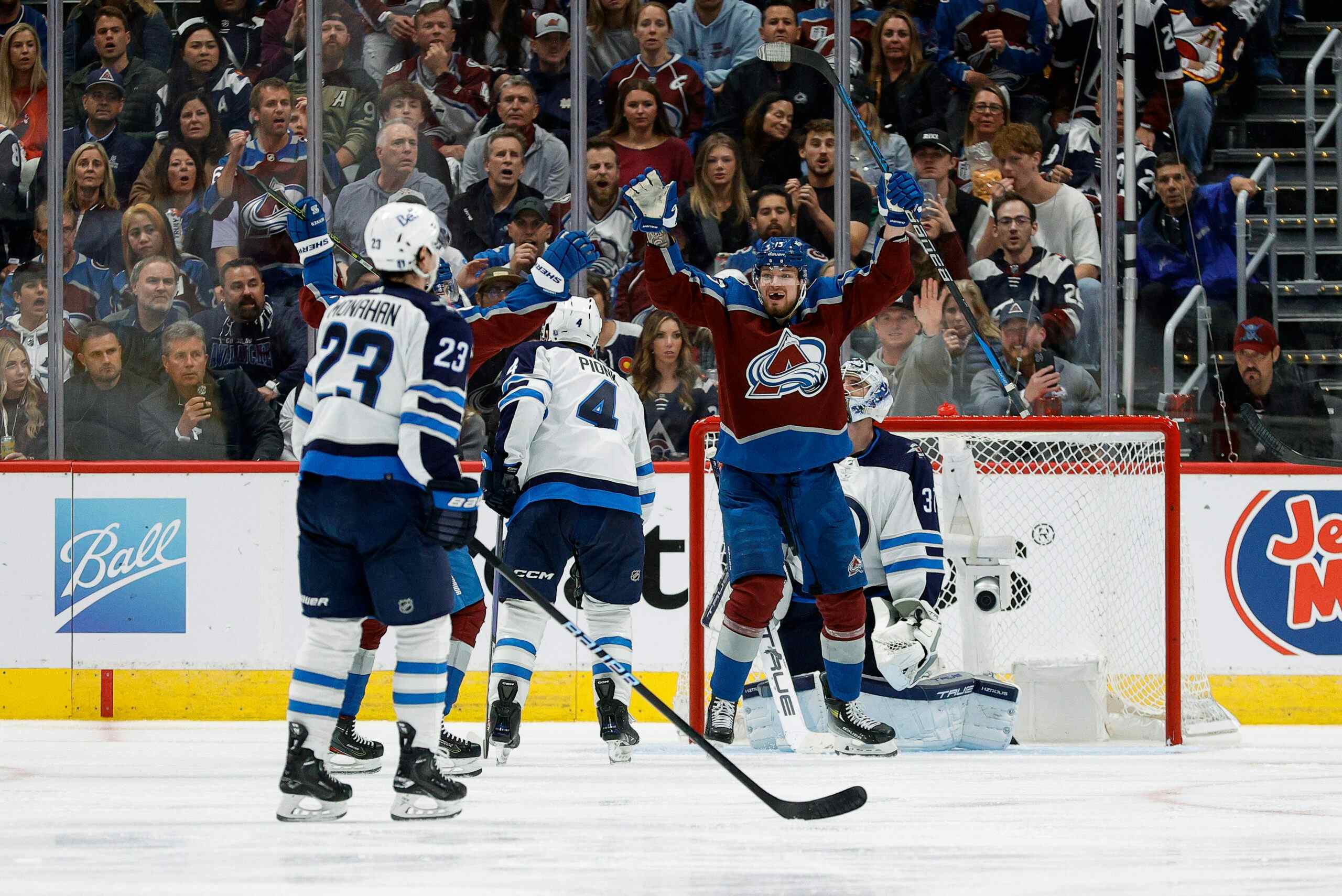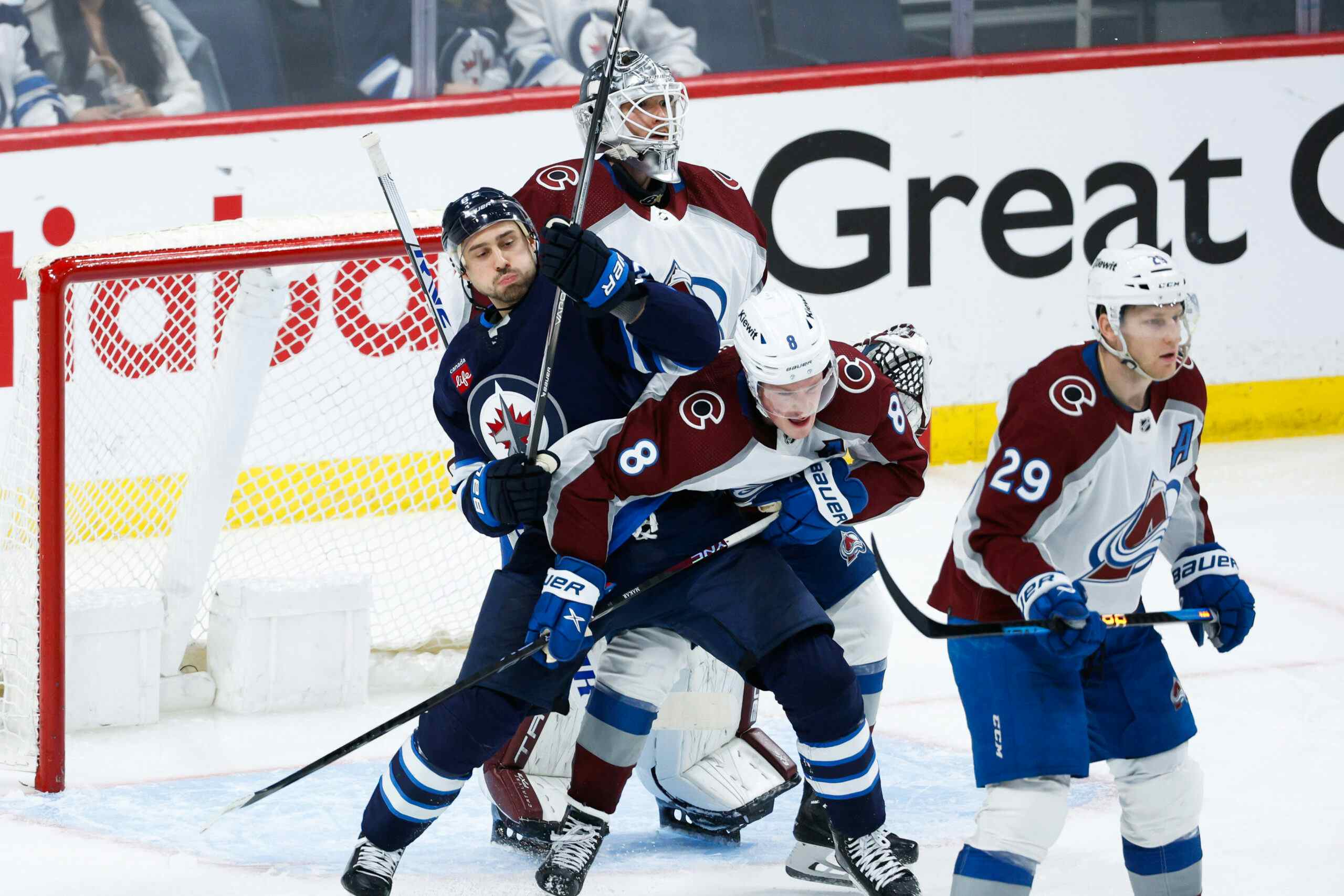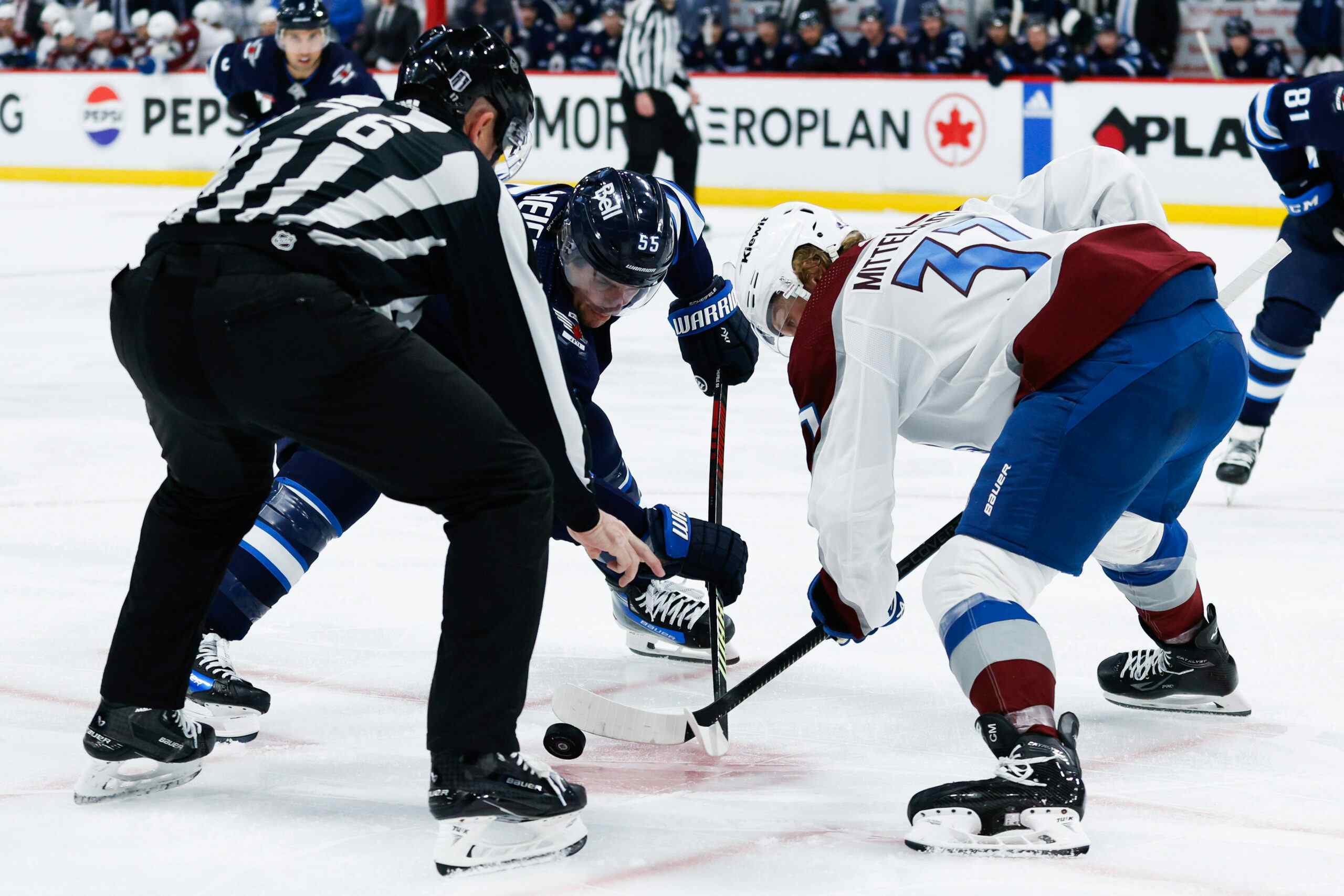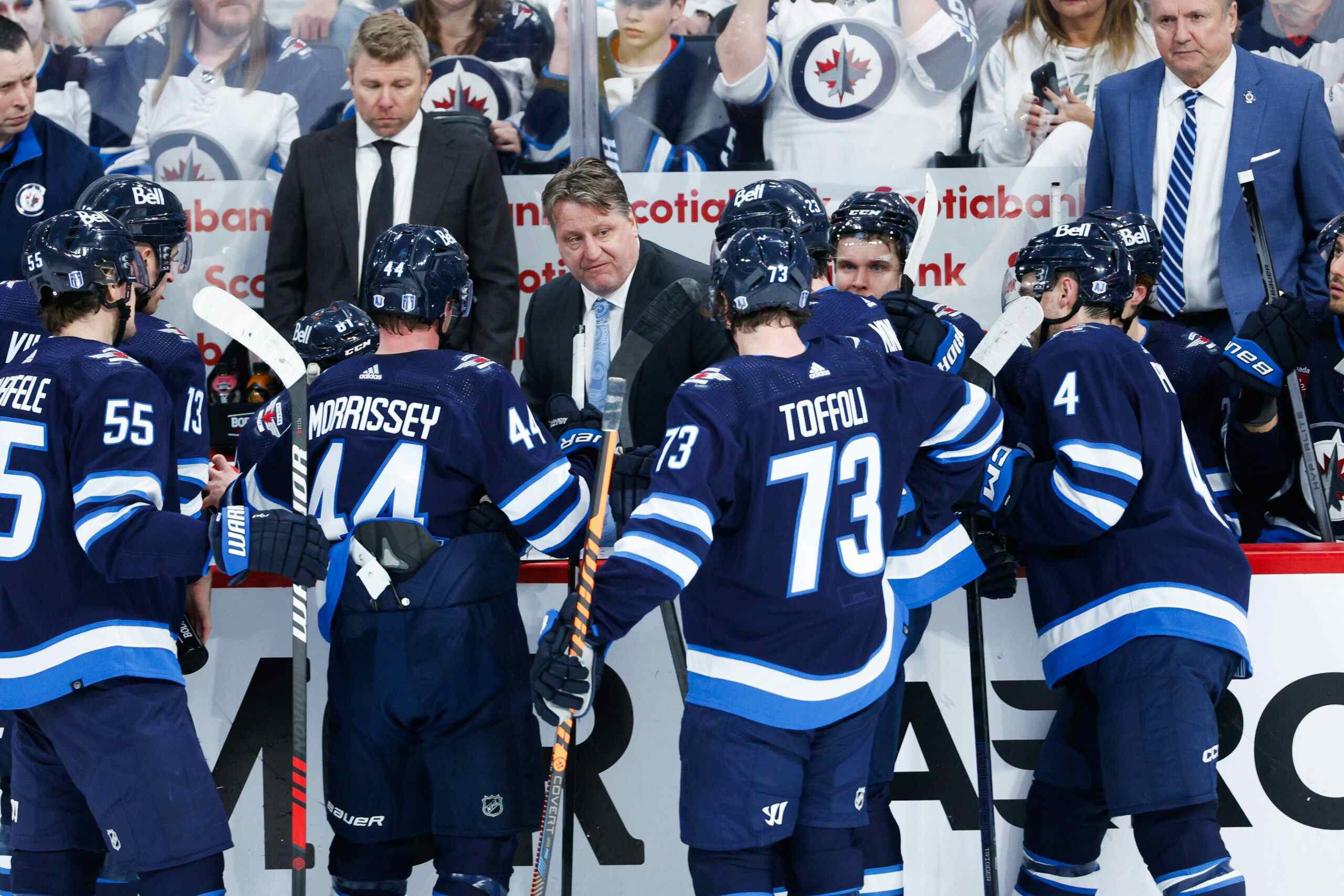Do the Jets win more games when out-hitting?
By Garret Hohl
9 years agoThe hit statistic is one of the more common stats thrown out there in game analysis. It isn’t uncommon to hear some saying they are losing due to lack of physicality, show the hit numbers, and then play some clips. Earlier this morning I wrote an article at Hockey-Graphs about hitting and its negative relationship with goal differentials.
But what about the Jets? Does this trend persist for them?
Let’s take a look.
If you want, you can read the Hockey-Graphs article here, but it can be summarized by this graph here for games between Oct 2007 – Jan 2015:

Hit differentials tend to have an inverse relationship with goal differentials, where teams that were outscored tend to outhit.
The Jets sample size for this season is extremely smaller than the one above, but the same trend is shown to exist:

While the Jets have a better average goal differential per game when out-hit, their goal differential is fairly neutral when out-hitting.
In most games, teams are quite close in hit differentials. Over half of all NHL games have both teams within 5 hits of each other for 5v5 minutes.
To account for this, I added an additional “neutral” category for when either team was within 2% of the other in terms of their share of total hits.

The numbers fall a bit closer to the general trend viewed in the league wide example, although the Jets have been a better team than average.
While we have already shown the trend extends to the Jets as well, I wanted to take a third look. It has been previously shown that statistics like hits, giveaways, and takeaways are the most affected by home-scorers’ bias.
Hockey analysts use home/road splits when investigating whether or not trends exist due to home-scorers’ bias.

Only one “out-hit” game is removed from the sample when looking at away games only, yet over half of the “out-hitting” sample is removed. This evidence suggests that the Jets scorer over counts hits for the Jets. Still, we see a similar pattern in the Jets goal and hit differentials.
Closing Thoughts
The previous discussion was exclusively about the relationship between goal and hit differentials. Correlation does not always equate to causation, and this is an example of such. A team shouldn’t stop hitting, nor would they win more if they did. That has never been the argument.
Teams hit for a reason. You hit to remove your opponent from the play or make them hesitant to challenge you in the future. The Jets physicality has been a large reason for their success.
It has never been that hitting is bad, but rather that the hit statistic is a bad representation of teams that are effective in their physical play. A team or player can hit more because they are effective or because they are chasing the play.
Random aside: In my research I did notice some anecdotal evidence that hits seem highly influenced by score-effects, much like Corsi. It would be interesting to see if there can be a score-adjustment used for hits and what relationship it has with other variables, both in correlation and predictive elements.
Recent articles from Garret Hohl





